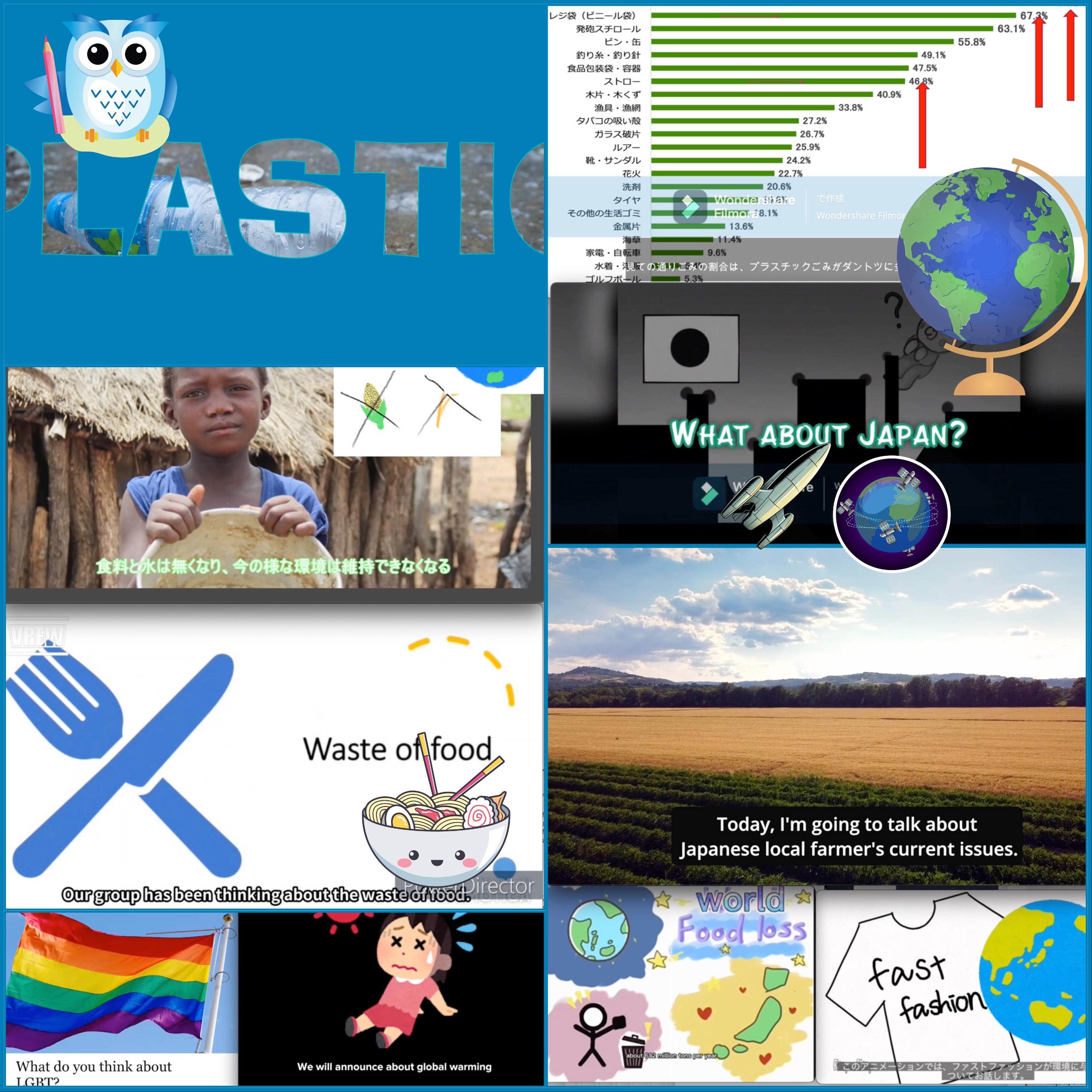Malcolm's Comment on Interdisciplinary Seminar
In my previous blog comment, which focused on my seminar, I discussed the importance of developing both mono tsukuri and koto tsukuri. I linked these to the X-factors: DX (Digital Transformation), CX (Corporate Transformation) and SX (Social Transformation). In this blog, I focus on the Interdisciplinary seminar (What Futures Await? Explaining the scenarios in digital narratives) I teach with Chunmei Huang using the mono tsukuri and koto tsukuri as the drivers.
The seminar focuses on current critical variables that are impacting our futures, both in Japan and globally. The most readily discussed are climate change, plastics, food security, population issues, and cultural values. These are examples of the 'polycritical' factors that no one country can solve, but will have wide-reaching impacts on local communities.
As Japan targets the so-named 'Society 5.0', which is at the intersection of economic targets, technological innovation, and Sustainable Development Goals (SDGs), there emerges the need to adopt different strategies. Let's face the 'elephant in the room': the current economic and financial systems, development and growth strategies, and simplistic approaches to dealing with the 'polycritical' wicked problems are far from sufficient. Perhaps it is best to provide a simple analogy. If a car gets a puncture, the tire needs to be repaired before the vehicle can operate efficiently. A failure to fix the tire will just escalate the problem until the vehicle becomes terminally beyond use. The creation of the "betterment of human lives" and "new wisdom" (Society 5.0), requires the future human assets, that is, the youth, to move beyond being passive consumers of things and knowledge to be informed creators and directors of finance, economics, development, climate change, environmental urbanization, population-related impacts, risk management, amongst others.
The interdisciplinary seminar is an opportunity for students to step away from being passive receivers of information that is delivered to them in 90-minute lectures and speeches - a reinforcement of previous patterns that societies need to correct - to being active, engaged and informed creators of knowledge and information. The role of the professors also changes from the deliverers of information to mentors and collaborators in the creation and development of knowledge. The shared engagement enables alternative insights to emerge. This process can be destabilizing for both student and professor, as their past experiences may not be congenial to co-operative participation. To find solutions to the 'polycritical' factors societies face, we need to embrace the different insights, as one of the many ideas that emerge may prove to be a useful solution. The interdisciplinary seminars facilitate applied learning to real-world challenges.
To this end, students consider some of the 'polycritical' factors that are influencing our societies, discuss the challenges, and consider possible strategies that may help future societies alleviate some of the potential impacts. By the end of the seminar, students create a multimedia digital narrative that communicates and speaks to their targeted audience. This is a beginning in the mono tsukuri and koto tsukuri journey.








